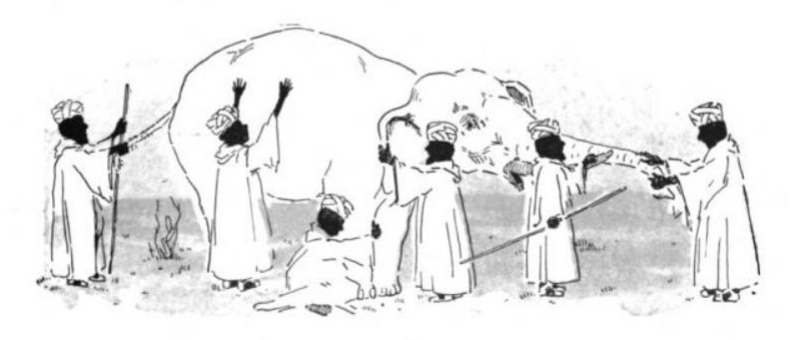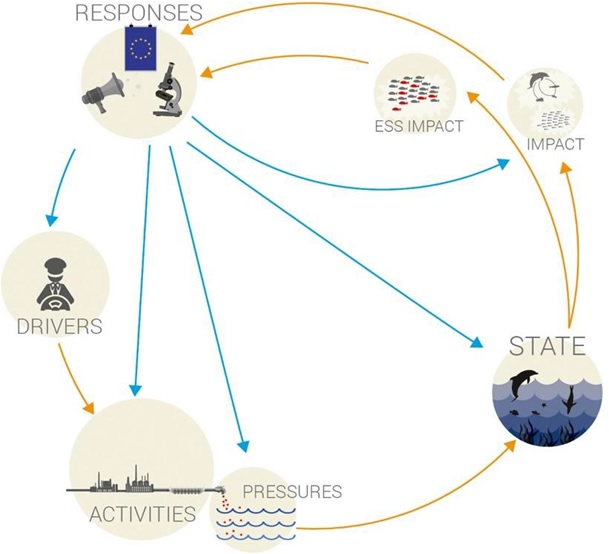
The old Indian story of the blind men and the elephant is often used to illustrate a number of different phenomena. They each touch a different part of the elephant, and have very different opinions on what it is. The story is used to illustrate things such as:
If we try to understand complex systems right down to the lowest level, we lose the big picture. It is very difficult to see the both the big picture and the smallest level of detail at the same time
Clearly when we are dealing with complex situations, we need to consider the consequences of our actions. While promoting tourism will probably increase local wealth in the short term, the long-term consequences can be quite undesirable. Increased pressure on the environment, due to waste and increase use of water resources, can have knock-on effects on existing industries, and ultimately damage what made the area so attractive in the first place. Fixing problems cannot be done using simple linear thinking. Sustainable solutions can only be found through application of systems thinking.
Systems Thinking is a way of helping us to see the big picture.
DPSIR is a causal framework for describing the interactions between society and the environment.

Drivers require a set of Activities to these changes needs. The activities may cause multiple Pressures which may lead to State changes in the natural system. State changes may result in Impacts (on the environment and ultimately, on Human Welfare. That will need to be addressed through Responses. Responses can tackle either part of the DAPSI(W)R approach, from modifying drivers to technological developments focused on e.g. minimizing impacts